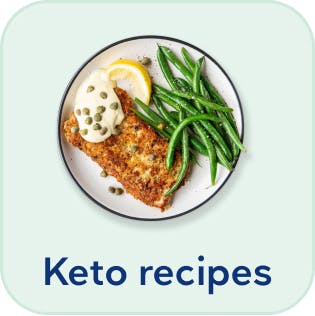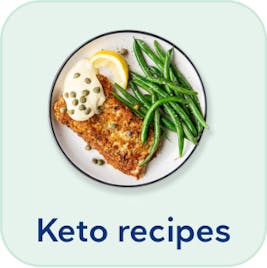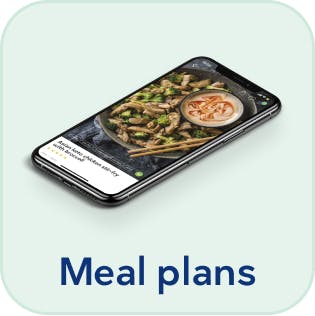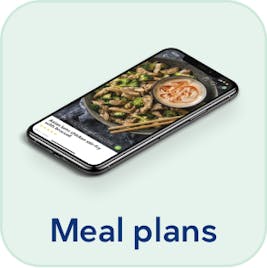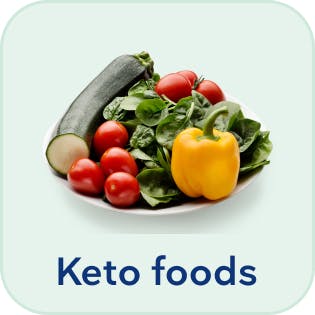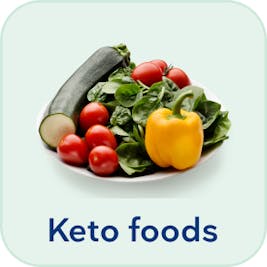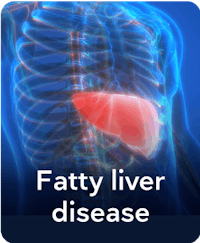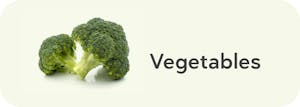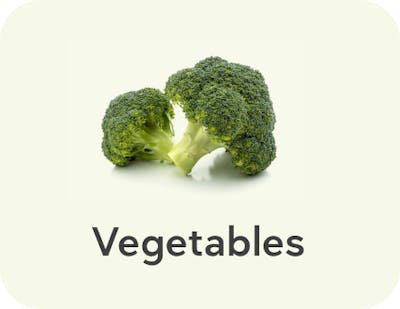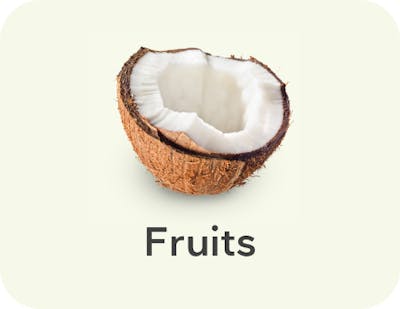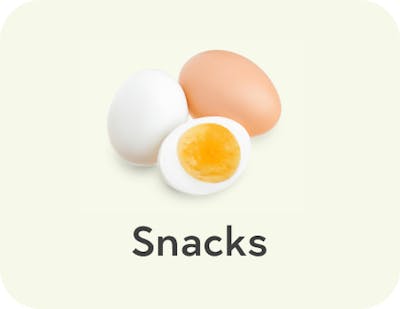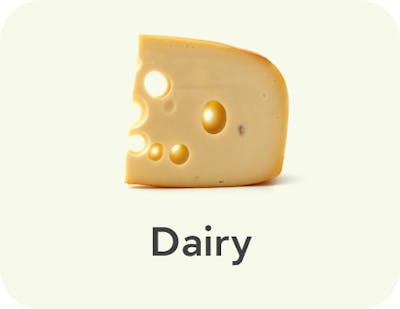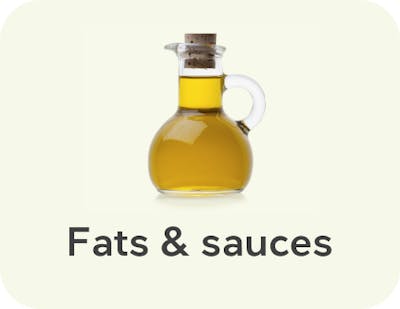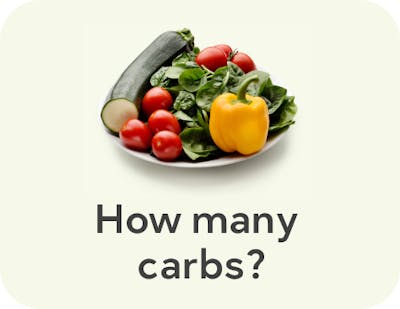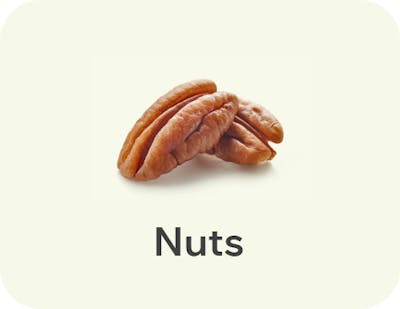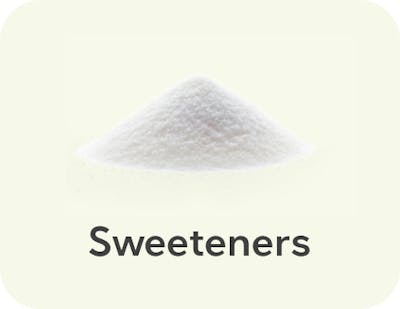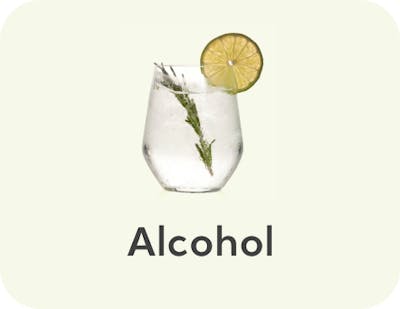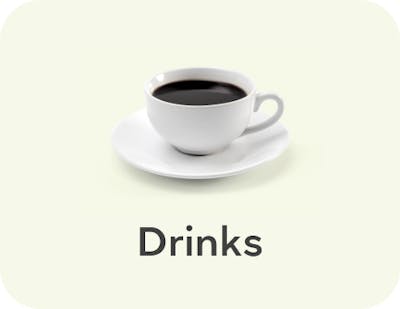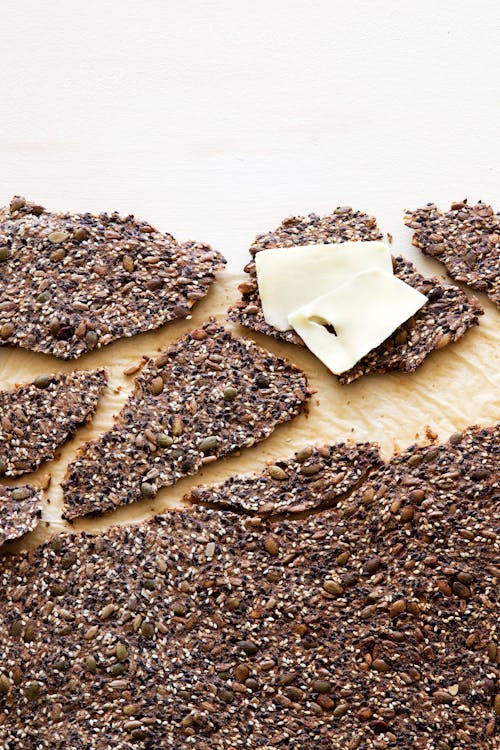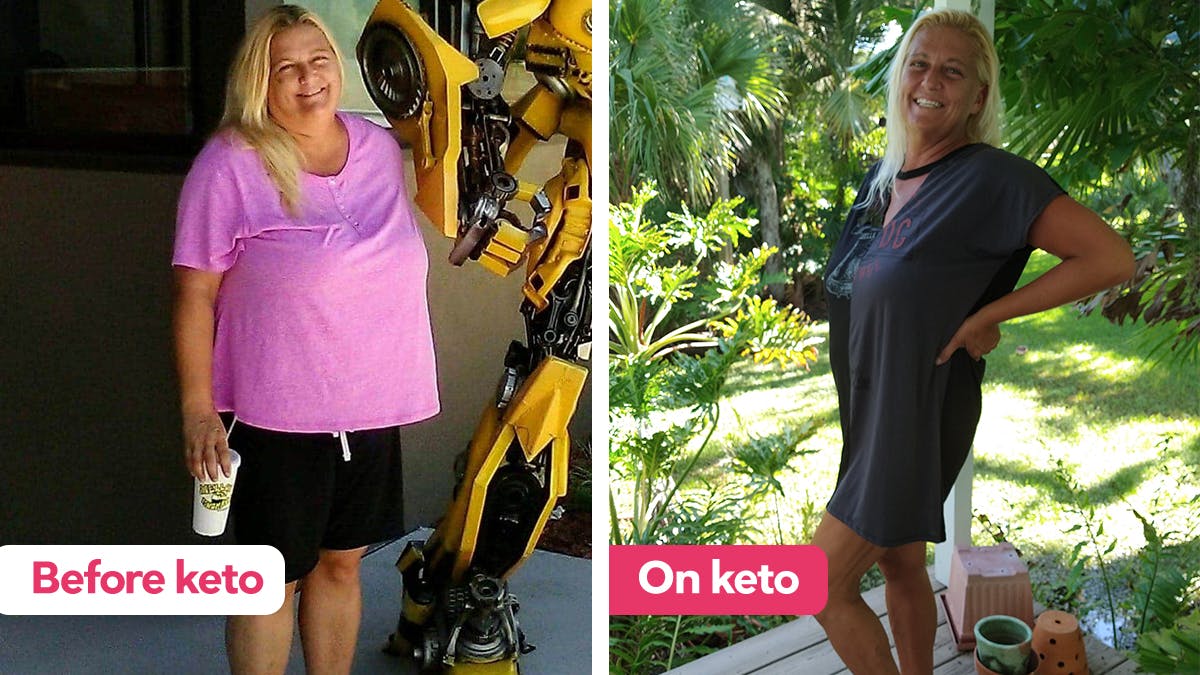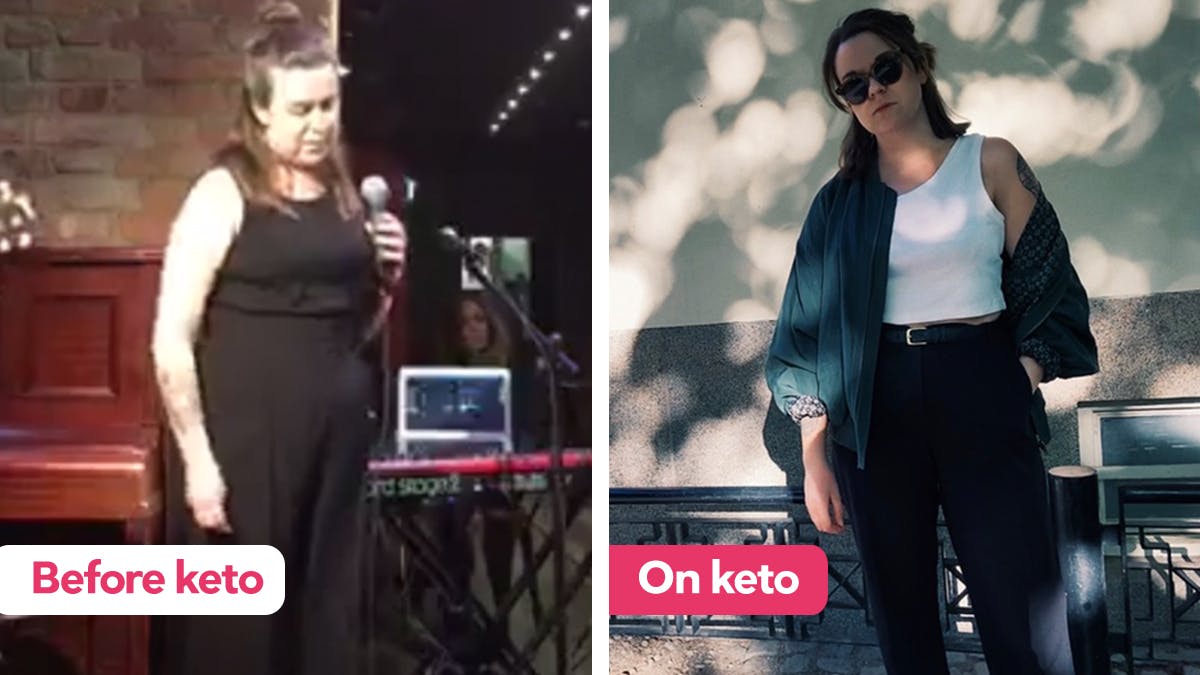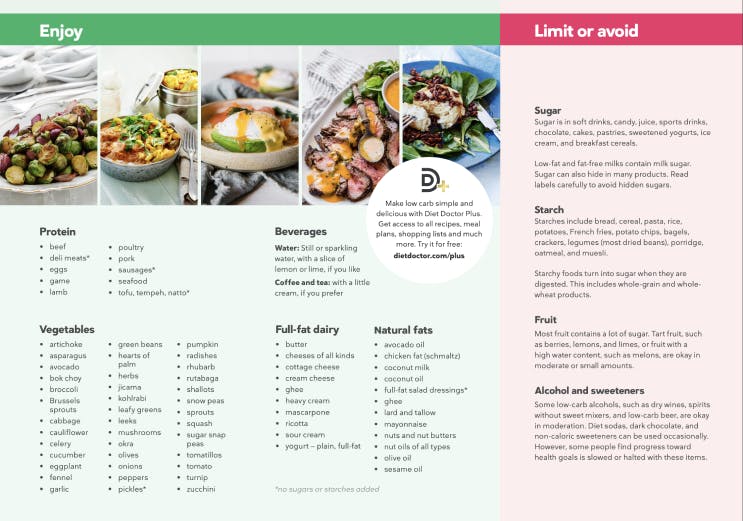A keto diet for beginners
Evidence based
A ketogenic diet – or keto diet – is a low carb, high fat diet. It can be effective for weight loss and certain health conditions, something that’s been demonstrated in many studies.1
A keto diet is especially useful for losing excess body fat without hunger, and for improving type 2 diabetes or metabolic syndrome.2
On a keto diet, you cut way back on carbohydrates, also known as carbs, in order to burn fat for fuel.
In this beginner’s guide, you’ll learn all you need to know about ketogenic diets, including how to get started to achieve the best results safely and effectively.




Learn more about keto and…
Key takeaways
Reduce carbs, get plenty of protein, and add fat for flavor and fullness. What to eat and avoid
What can keto do for you?
If you want to lose weight or improve blood sugar with little hunger and without counting calories, it’s a great option. Common results and how to achieve them
Is keto safe?
Keto is generally safe, but there are potential side effects and some people need precautions. What you need to know
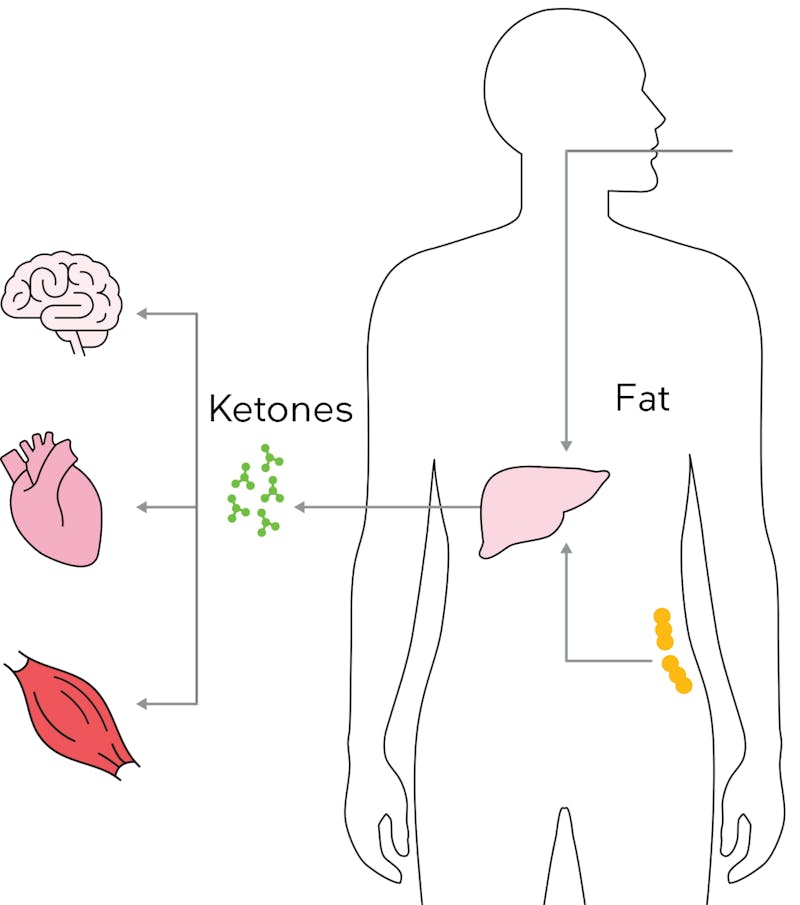



1. What is a keto diet?
A keto diet is one that limits carbs and has many potential health benefits.When you eat far fewer carbs, your body begins to burn fat for fuel. This can put your body into a metabolic state called ketosis. In this state, your liver turns fat into small energy molecules called ketones, which your brain and other organs can use for energy.
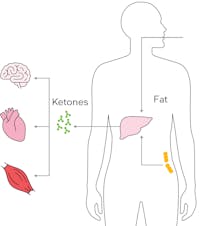



Learn more about ketosis
Summary
The keto diet is a low carb, high fat diet. It can help the body burn more fat, reduce hunger, and reduce blood sugar levels.In this guide, you’ll learn how to eat a keto diet. Our visual guides, recipes, meal plans, and simple two-week Get Started program are everything you need to succeed on keto.
Start now
The keto video course
You can quickly learn more about the keto diet in this video course.
Watch the entire 8-part video course
Start now
Related content
Precautions before starting a keto diet
There are controversies and myths about a keto diet, but for most people, it appears to be very safe. However, two groups often require medical supervision:
- Do you take medication for high blood pressure? More >
- Do you take medication for diabetes, such as insulin? More >
Some people should avoid keto altogether:
- Do you breastfeed? More >
For more details about the pros and cons in different situations, check out our full guide: Is a keto diet right for you?
Disclaimer: While the ketogenic diet has many proven benefits, it’s still controversial. The main potential danger regards medications, e.g. for diabetes, where doses may need to be adapted (see above). Discuss any changes in medication and relevant lifestyle changes with your doctor. Full disclaimer >
This guide is written for adults with health issues, including obesity, that could benefit from a ketogenic diet.
Related content
Start your FREE 30-day trial!
Get instant access to healthy low carb and keto meal plans, fast and easy recipes, weight loss advice from medical experts, and so much more. A healthier life starts now with your free trial!
Start FREE trial!2. What to eat on a keto diet?
Here are typical foods to enjoy on a ketogenic diet. The numbers are net carbs per 100 grams (3.5 ounces) of food.
To remain in ketosis, foods with lower counts are generally better:
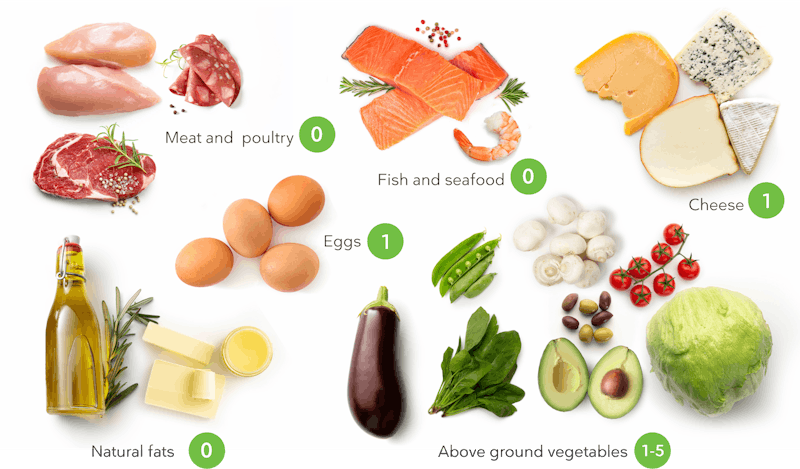



What’s the most important thing to do to reach ketosis? Avoid eating too many carbs. You’ll likely need to stay under 50 grams of net carbs (total carbs minus fiber) per day, ideally below 20 grams.
The fewer carbs you eat, the more effective the diet appears to be for reaching ketosis, losing weight, or improving type 2 diabetes.
Counting carbs can be helpful at first. But if you stick to our recommended foods and recipes you can stay keto even without counting.
Detailed list of what to eat and avoid on a keto diet >
Visual guides
For more on specific topics – like what fruits or nuts to eat on a ketogenic diet – check out our popular visual guides:
Planning keto
With the right strategy, creating keto meals is easy.
One way is to start by picking a protein source, such as meat, fish, seafood, eggs, or tofu. Then, to complete your meal, choose two low carb vegetables and add a healthy source of fat.
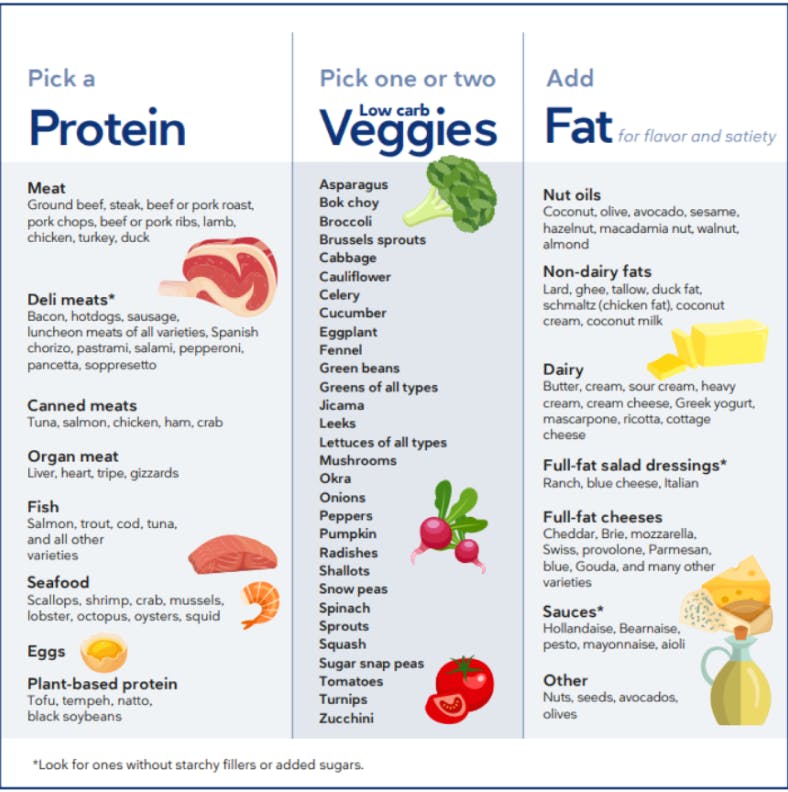




What to drink
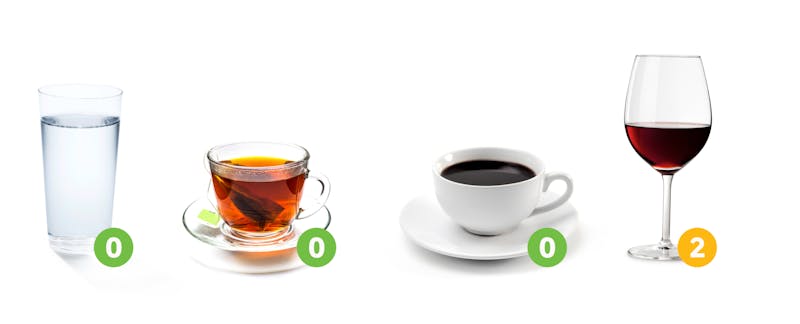



What can you drink on a ketogenic diet? Water is the perfect drink, and coffee or tea are fine too. Ideally, use no sweeteners, especially sugar.
A splash of milk or cream in your coffee or tea is OK, but beware that the carbs can add up if you drink multiple cups in a day (and definitely avoid caffe lattes!). The occasional glass of wine is fine, too — but steer clear of sweet alcoholic drinks.
Carb counts per glass or cup of beverage
Check out our full guides to keto drinks and keto alcohol.
Try to avoid
Here’s what you should avoid on a keto diet – foods containing a lot of carbs, both the sugary and the starchy kind.
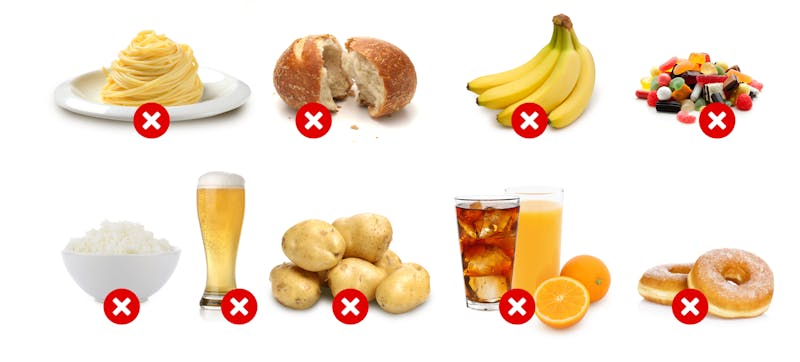



Foods to stay away from include:
- Bread, tortillas, muffins, bagels, pancakes
- Pasta and rice
- Cereal
- Cakes, cookies, and other baked goods
- Sugar and anything made with sugar
- Most fruits and fruit juice7
Also, avoid or limit highly processed foods and instead fill your diet with our recommended keto-friendly food options.
More specific advice on what to eat – and what not to eat >
Summary
Base your keto meals on meat, poultry, fish, eggs and other protein-rich foods. Include lots of leafy greens, non-starchy veggies, and salads. Use fats like olive oil for flavor and to fill in calories, if needed. Avoid sugary and starchy foods. Drink water, tea, or coffee.
Related content
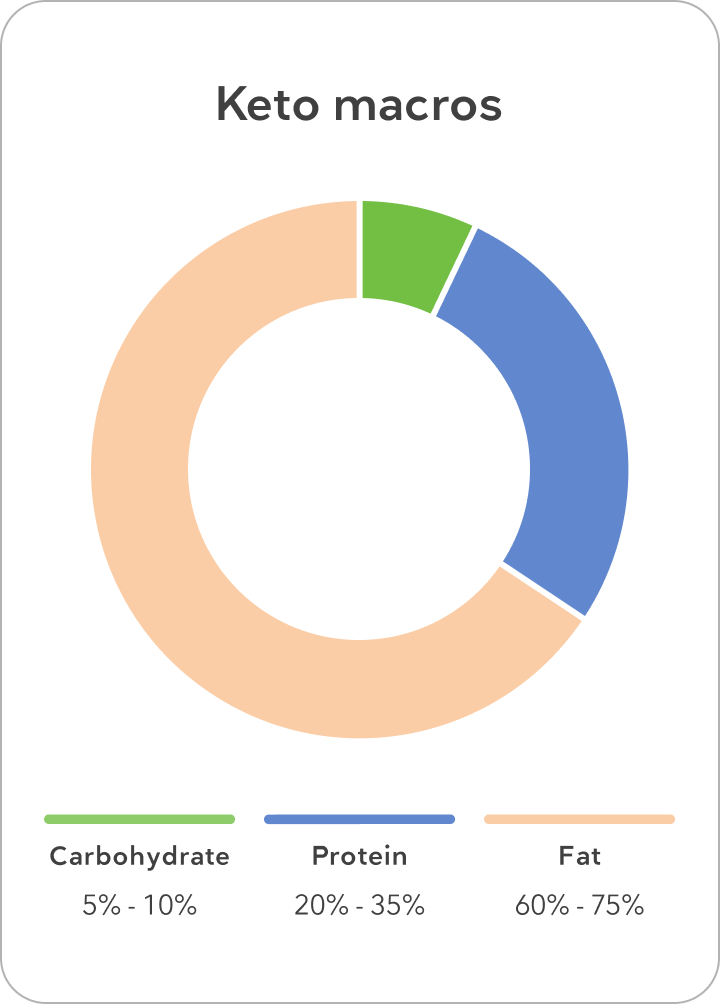







Keto macros: Carbs, protein, & fat
When following a keto diet, the idea is to eat very few carbs, a moderate amount of protein, and just as much fat as you need to feel satisfied, rather than stuffed.
Carbohydrates
Limit carbs to 20 or fewer grams of net carbs per day, or 5 to 10% of calories. Although it’s possible that you may not need to be this strict, eating fewer than 20 grams of net carbs every day virtually guarantees that you’ll be in nutritional ketosis. Learn more >
Protein
Eat enough protein to meet your needs. Most people need at least 70 grams per day, or 20 to 35% of calories from protein. Learn more >
Fat
Include enough fat to add flavor. There’s no reason to add lots of fat unless you need extra calories. Plus, many whole foods like eggs and meat contain plenty of fat. On a keto diet, about 60 to 75% of your calories come from fat. Learn more >
Related content
Keto diet recipes
We have hundreds of fantastic keto diet recipes.
Here are the most popular ones:
3. Keto results —
how can it benefit you?
If you are wondering what kind of results you can expect from a keto diet, the answer depends on how strict you are, along with a number of other factors.
Evidence shows that keto diets help with weight loss, blood sugar control, and many other conditions.8 But outcomes from even the most well-run study are still an average of what each participant experienced.
That means that your experience with keto will be unique. Your weight loss and health improvements may be sudden and dramatic or they may be slow but steady.
What you can expect from keto, almost without exception, is to eat foods you enjoy, without hunger or calorie-counting. If your diet is easy, enjoyable, and provides adequate essential nutrition, you’ll more likely be able to follow it long term to lose weight, improve your health, and maintain these benefits.
What benefits might you experience by switching to a keto diet? Quite a few, possibly.
It works!





Weight loss without hunger
Science shows keto and low carb diets are often effective for losing weight.9
In fact, more than 35 high-quality scientific studies show that, when compared to other diets, low carb and keto diets lead to greater weight loss.
Why do keto diets work so well for losing weight? As discussed earlier, being in ketosis lowers insulin levels, which can help you access your body fat stores more easily.10
Another reason may be that keto diets help people naturally eat less, as a result of feeling more satisfied. 11





Control or reverse type 2 diabetes14
Keto and low carb diets can provide powerful blood sugar control for people with type 2 diabetes.15 Why? Because carbohydrates raise blood sugar much more than either protein or fat.16 To lower blood sugar — and potentially reverse type 2 diabetes — eat fewer carbs. It can be that simple.
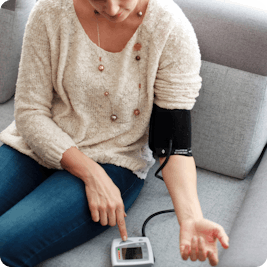




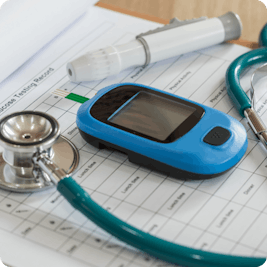




Control type 1 diabetes
People with type 1 diabetes need to take insulin injections no matter what type of diet they eat. However, low carb diets often improve blood sugar control and reduce the risk of hypoglycemia (dangerously low-blood sugar).22
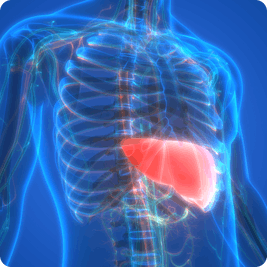




Improve fatty liver disease
In non-alcoholic fatty liver disease (NAFLD), too much fat is stored in the liver. Recent research suggests a keto or low carb diet may help reduce or even reverse NAFLD.
Other potential benefits
Although there’s less high-quality research about the benefits of a keto diet for other conditions, emerging evidence suggests that it might be helpful for some people — and for many, it’s certainly worth trying.
- Polycystic ovary syndrome (PCOS)
- Irritable bowel syndrome (IBS)
- Acne
- Epilepsy
- Mental health
- Physical endurance
- Migraines
Summary
A keto diet has been shown to provide several benefits, such as weight loss, reversal of type 2 diabetes, and improved metabolic health.
4. Potential risks of a keto diet
Does eating a keto diet pose any health risks? Although research on long-term health effects is needed, the evidence to date suggests that keto diets providing adequate nutrition are unlikely to cause harm.27
It is true that some people following ketogenic diets have experienced adverse effects, including kidney stones and vitamin and mineral deficiencies.28
However, these side effects are rare and we suspect they may vary with the variety of foods eaten.
In some cases, elevations in LDL-cholesterol and LDL-particle number have occurred in people who eat keto or low carb diets with less fat and more protein than the classic ketogenic diet.29
However, individuals with diabetes or insulin resistance often respond to low carb eating with improved lipid markers overall, as discussed earlier.
If your LDL increases after starting a keto or low carb diet, please read our guides on LDL hyper-responders, the potential dangers of LDL cholesterol, and how to lower LDL cholesterol.




5. How to get into ketosis
Ketosis is a metabolic state in which your body uses fat and ketones rather than glucose (sugar) as its main fuel source.
How can you get into ketosis quickly and stay there? Here are three things to know:
- Eat less than 20 grams of net carbs per day. Cutting way back on carbs can help you get into ketosis rapidly, often within a few days.
- Avoid eating too often. If you’re not hungry, don’t eat. Intermittent fasting or even just eliminating snacks can help you get into ketosis faster.
- Measure ketones. Testing for ketones in your blood, breath, or urine can confirm that you are indeed in ketosis. Each of these methods comes with pros and cons. For a detailed comparison, see our full guide to the best way to test ketones.
6. Common mistakes
The “perfect” approach to keto will likely differ from person to person. But to help you get ahead of the game, here are some common mistakes to avoid to achieve keto success.





Going overboard with fat
Have you heard that fat is a free food on a keto diet, or that if you want to lose fat, you should eat more fat? The truth is that eating too much fat prevents your body from using its stored fat for energy. So, go easy on fat if you’re trying to lose weight. Learn more >
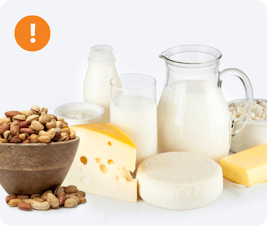




Eating too many nuts and dairy products
Most nuts and some dairy products (cheese and Greek yogurt) are keto-friendly. However, their carbs and calories can add up fast if you eat too much — and these tasty foods are easy to overdo. For best results, keep portion sizes small. Learn more >
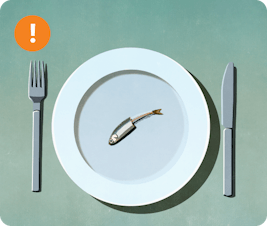




Fear of too much protein
Are you concerned that eating a lot of meat, eggs, and other high protein foods will lead to gluconeogenesis (literally “making new glucose”) and raise your blood sugar? You don’t need to be. Studies in people with type 2 diabetes suggest that protein usually has little to no effect on blood sugar levels.30 Learn More >
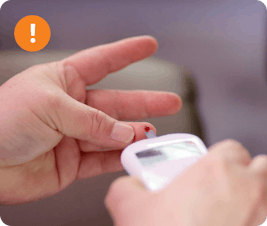




Chasing higher ketone levels
Being in nutritional ketosis means that your blood ketone levels are between 0.5 and 3.0 mmol/L. However, higher levels don’t appear to be any better than lower levels for weight loss. In fact, you don’t necessarily need to be in ketosis to lose weight. Learn more >




7. Intermittent fasting & keto
Some people on a keto diet choose to also practice intermittent fasting to speed up weight loss or when trying to reverse type 2 diabetes.
Intermittent fasting involves cycling between periods of fasting and eating. When eating a keto diet, many people feel hungry less often. And since we advise eating only when you are hungry, this means that you might naturally begin to eat fewer meals a day — or you may deliberately plan fewer meals to match your reduced appetite. For some people, this could mean eating two meals a day (often skipping breakfast). For others, this could mean eating once a day, which is often referred to as OMAD, meaning “one meal a day.”
Want to learn more about the potential benefits of intermittent fasting — or need information on how to get started? Read our full guide to intermittent fasting.
Related content
8. The keto flu & side effects
Once you’ve been on a keto diet for a few weeks or more, you will likely feel great and have lots of energy. However, the first few days to weeks can be tough, as your body switches from burning mostly glucose to burning mostly fat for fuel.
Keto flu
When your body makes this shift, you may experience what’s commonly known as the “keto flu.” It happens as a result of changes to your body’s balance of fluid and minerals when you begin eating very few carbs.
Symptoms of keto flu include:
- Fatigue
- Headache
- Irritability
- Lack of motivation
- Difficulty focusing (“brain fog”)
- Dizziness
- Muscle cramps
- Less energy for intense exercise
Fortunately, you can minimize these symptoms before they start by replenishing fluids and salt. Good strategies include drinking a cup or two of salty broth or being liberal with the salt shaker.
Also, remember that these symptoms are temporary. As your body adapts to its new way of getting energy — from fat instead of sugar — symptoms should quickly subside.
Learn more in our complete guide: The keto flu, other side effects, and how to cure them.
Summary
When starting a keto diet, there’s a chance you’ll get the “keto flu” as a result of changes to your body’s balance of fluid and minerals once you start cutting out carbs. The good news is, these symptoms are temporary and you can take steps to mitigate them.Related content
9. Keto FAQ




Here are a few of the more commonly asked questions about keto:
Is keto safe?
For most people, eating a keto diet is safe. However, as mentioned earlier, if you take medications for diabetes or high blood pressure, you should speak with your doctor about adjusting your medications.Those who should avoid being in ketosis include breastfeeding women and people with rare metabolic conditions that are typically diagnosed in childhood.31
How much weight can I expect to lose on keto?
Unfortunately, there isn’t a one-size-fits-all answer to this question.33Most people lose about 2 to 4 pounds (1 to 2 kilos) during the first week. Some people lose even more.
Keep in mind that a good portion of this is water weight, though. After the first couple of weeks, weight loss often slows down quite a bit. While a lot of people continue losing about 1 pound (0.5 kilo) of weight a week, many others lose more or less than this.
How will I know whether I’m in ketosis?
Sometimes, you’ll have a pretty good idea when you’re in ketosis34. Among the most common signs are:- Dry mouth or a metallic taste in the mouth
- Increased thirst and more frequent urination
- “Keto breath” or “fruity breath,” which may be more apparent to others
- Initial fatigue, followed by an increase in energy
- Decreased appetite and food intake (one of the more welcome side effects!)
What is the difference between keto and low carb?
Keto and low carb diets differ by how many carbs they contain, and sometimes by which foods are included.At Diet Doctor, we define keto and low carb diets by the following:
Keto: Less than 20 grams of net carbs per day
Moderate low carb: Between 20 and 50 grams of net carbs per day
Liberal low carb: Between 50 and 100 grams of net carbs per day
On a keto diet, carbohydrates are minimized to achieve ketosis. On a low carb diet, ketosis may occur, but it isn’t a goal.
More questions and answers:
Should I aim for high ketone levels to speed up weight loss? >
Can I eat a keto diet as a vegetarian or vegan? >
10. How to start a keto diet now
Before starting a keto diet, check with your healthcare provider if you take:
- medications for diabetes
- medications for high blood pressure
In general, you should discuss any significant diet or lifestyle changes with your doctor.
If you are breastfeeding, a keto diet may not be right for you at this time. You can still limit unnecessary carbs without eating a strict keto diet. Learn more >
After you’ve gotten the go-ahead from your healthcare provider, just follow the next few steps:




1. Get a fresh start
Improve your chances for success by using this guide to clean out your fridge, freezer, and pantry.




2. Plan ahead
Create a simple plan for the week. Or check out our free keto meal plan.




3. Shop and restock
With your plan in hand, it’s time to grocery shop. Use this shopping list of low carb foods to guide you.
Leaflet
Here’s our leaflet with basic keto advice. Print it out, put it on your fridge — or give it to your curious friends!
Start your FREE 30-day trial!
Get instant access to healthy low carb and keto meal plans, fast and easy recipes, weight loss advice from medical experts, and so much more. A healthier life starts now with your free trial!
Start FREE trial!A ketogenic diet for beginners - the evidence
This guide is written by Dr. Andreas Eenfeldt, MD, Dr. Bret Scher, MD and was last updated on November 29, 2022. It was medically reviewed by Dr. Michael Tamber, MD on February 15, 2022.
The guide contains scientific references. You can find these in the notes throughout the text, and click the links to read the peer-reviewed scientific papers. When appropriate we include a grading of the strength of the evidence, with a link to our policy on this. Our evidence-based guides are updated at least once per year to reflect and reference the latest science on the topic.
All our evidence-based health guides are written or reviewed by medical doctors who are experts on the topic. To stay unbiased we show no ads, sell no physical products, and take no money from the industry. We're fully funded by the people, via an optional membership. Most information at Diet Doctor is free forever.
Read more about our policies and work with evidence-based guides, nutritional controversies, our editorial team, and our medical review board.
Should you find any inaccuracy in this guide, please email andreas@dietdoctor.com.
Most studies have shown that low carb diets are equivalent to or better than low fat diets for weight loss. These three meta-analyses of randomized trials found that low carb was superior to low fat:
Nutrients 2020: Impact of a ketogenic diet on metabolic parameters in patients with obesity or overweight and with or without type 2 diabetes: a meta-analysis of randomized controlled trials [strong evidence]
PLoS One 2015: Dietary intervention for overweight and obese adults: Comparison of low carbohydrate and low fat diets. A meta-analysis [strong evidence] Learn more
The British Journal of Nutrition 2016: Effects of low carbohydrate diets v. low fat diets on body weight and cardiovascular risk factors: a meta-analysis of randomised controlled trials [strong evidence] Learn more ↩
Obesity Reviews 2015: Do ketogenic diets really suppress appetite? A systematic review and meta-analysis [strong evidence]
European Journal of Clinical Nutrition 2013: Ketosis and appetite-mediating nutrients and hormones after weight loss
[non-controlled study; weak evidence]Nutrients 2020: Impact of a ketogenic diet on metabolic parameters in patients with obesity or overweight and with or without type 2 diabetes: A meta-analysis of randomized controlled trials [strong evidence]
Diabetes Research and Clinical Practice 2018: Effect of dietary carbohydrate restriction on glycemic control in adults with diabetes: A systematic review and meta-analysis [strong evidence] ↩Journal of the American College of Nutrition 2013: Improvements in glucose metabolism and insulin sensitivity with a low carbohydrate diet in obese patients with type 2 diabetes [uncontrolled study; weak evidence]
JCI Insight 2019: Dietary Carbohydrate Restriction Improves Metabolic Syndrome Independent of Weight Loss [randomized trial; moderate evidence]
But the following study reported no difference in weight loss between the low fat and low carb groups, and there was also no difference in weight loss when taking insulin resistance status into account. Therefore, it is still unclear how much lowering insulin contributes to weight loss.
Obesity 2015: Weight loss on low fat vs. low carb diets by insulin resistance status among overweight adults & adults with obesity: A randomized pilot trial [moderate evidence]
↩Nutrients 2019: Non-energy-restricted low carbohydrate diet combined with exercise intervention improved cardiometabolic health in overweight Chinese females [moderate evidence]
Annals of Internal Medicine 2014: Effects of low carbohydrate and low fat diets; a randomized trial [moderate evidence]
Annals of Internal Medicine 2005: Effect of a low carbohydrate diet on appetite, blood glucose levels, and insulin resistance in obese patients with type 2 diabetes [non-randomized trial; weak evidence] ↩
Journal of the American College of Nutrition 2013: Improvements in glucose metabolism and insulin sensitivity with a low carbohydrate diet in obese patients with type 2 diabetes [uncontrolled study; weak evidence]
JCI Insight 2019: Dietary Carbohydrate Restriction Improves Metabolic Syndrome Independent of Weight Loss [randomized trial; moderate evidence]
But the following study reported no difference in weight loss between the low fat and low carb groups, and there was also no difference in weight loss when taking insulin resistance status into account. Therefore, it is still unclear how much lowering insulin contributes to weight loss.
Obesity 2015: Weight loss on low fat vs. low carb diets by insulin resistance status among overweight adults & adults with obesity: A randomized pilot trial [moderate evidence]
↩Nutrients 2019: Non-energy-restricted low carbohydrate diet combined with exercise intervention improved cardiometabolic health in overweight Chinese females [moderate evidence]
Annals of Internal Medicine 2014: Effects of low carbohydrate and low fat diets; a randomized trial [moderate evidence]
Annals of Internal Medicine 2005: Effect of a low carbohydrate diet on appetite, blood glucose levels, and insulin resistance in obese patients with type 2 diabetes [non-randomized trial; weak evidence] ↩
Although low-sugar berries — such as blackberries, raspberries, and strawberries — are ok in small to moderate amounts. ↩
Current Diabetes Reports 2021: Efficacy of ketogenic diets on type 2 diabetes: a systematic review [strong evidence]
Nutrients 2020: Impact of a ketogenic diet on metabolic parameters in patients with obesity or overweight and with or without type 2 diabetes: a meta-analysis of randomized controlled trials [strong evidence]
The British Journal of Nutrition 2013: Very-low-carbohydrate ketogenic diet v. low fat diet for long-term weight loss: a meta-analysis of randomised controlled trials [strong evidence]
Diabetes Research and Clinical Practice 2018: Effect of dietary carbohydrate restriction on glycemic control in adults with diabetes: A systematic review and meta-analysis [strong evidence] ↩
Several meta-analyses of randomized controlled trials (RCTs), considered the highest level of scientific evidence, conclude that low carb diets can be more effective than low fat diets for losing weight:
Nutrients 2020: The effect of low fat and low carbohydrate diets on weight loss and lipid levels: a systematic review and meta-analysis [strong evidence]
The British Journal of Nutrition 2013: Very-low-carbohydrate ketogenic diet v. low fat diet for long-term weight loss: a meta-analysis of randomised controlled trials [strong evidence]
PLoS One 2015: Dietary intervention for overweight and obese adults: Comparison of low carbohydrate and low fat diets. A meta-analysis [strong evidence] Learn more
The British Journal of Nutrition 2016: Effects of low carbohydrate diets v. low fat diets on body weight and cardiovascular risk factors: a meta-analysis of randomised controlled trials [strong evidence] Learn more
↩Journal of Medical Internet Research 2017: An online intervention comparing a very low carbohydrate ketogenic diet and lifestyle recommendations versus a plate method diet in overweight individuals with type 2 diabetes: a randomized controlled trial [randomized trial; moderate evidence]
Diabetes & Metabolic Syndrome 2017: Induced and controlled dietary ketosis as a regulator of obesity and metabolic syndrome pathologies [randomized trial; moderate evidence]
Nutrients 2020: The effects of a low calorie ketogenic diet on glycaemic control variables in hyperinsulinemic overweight/obese females [non-controlled study; weak evidence] ↩
For example, in a small study, 10 overweight adults who followed a non-calorie-restricted, very low carb diet ended up reducing their usual intake by 1,000 calories, on average — even though they were allowed to eat all the fat and protein they wanted:
Annals of Internal Medicine 2005: Effect of a low carbohydrate diet on appetite, blood glucose levels, and insulin resistance in obese patients with type 2 diabetes [non-randomized trial; weak evidence]
Obesity Reviews 2015: Do ketogenic diets really suppress appetite? A systematic review and meta-analysis [strong evidence] ↩
This finding has been referred to as the “metabolic advantage” of low carb. In two studies, people who had previously lost weight were found to burn between 200 to nearly 500 more calories per day on a low carb maintenance diet compared to a higher carb maintenance diet:
Journal of the American Medical Association 2012: Effects of dietary composition during weight loss maintenance: a controlled feeding study [randomized trial; moderate evidence]
British Medical Journal 2018: Effects of a low carbohydrate diet on energy expenditure during weight loss maintenance: randomized trial [randomized trial; moderate evidence] ↩
This is mainly based on the consistent experience of low carb clinicians, and stories from people trying different levels of carb restriction [weak evidence].
Additionally, one meta-analysis of RCTs found that very low carb diets limited to 50 grams of carbohydrates per day resulted in greater fat loss than low carb diets that provided about 40% of calories from carbs:
Obesity Reviews 2016: Impact of low‐carbohydrate diet on body composition: meta‐analysis of randomized controlled studies [strong evidence for fat mass loss on very low carb diets in particular] ↩
Some disagree with the use of the word “reverse” when it comes to type 2 diabetes. The concern is that it implies the disease is completely gone, never to return. At Diet Doctor, we use the term “reverse” to indicate that blood sugar levels are no longer in the diabetic range without the use of medications. However, we acknowledge that high glucose levels will likely recur if a patient goes back to their prior high carb eating habits. Therefore, “reverse” does not imply a forever cure. ↩
Meta-analyses of RCTs have shown that low carb diets consistently outperform other diets for blood sugar control:
International Journal of Endocrinology 2021: Comparing the efficacy and safety of low carbohydrate diets with low fat diets for type 2 diabetes mellitus patients: a systematic review and meta-analysis of randomized clinical trials [strong evidence]
Diabetes Research and Clinical Practice 2018: Effect of dietary carbohydrate restriction on glycemic control in adults with diabetes: A systematic review and meta-analysis [strong evidence]
The American Journal of Clinical Nutrition 2018: Effects of low carbohydrate- compared with low fat diet interventions on metabolic control in people with type 2 diabetes: a systematic review including GRADE assessments [strong evidence]
BMJ Open Diabetes Research and Care 2017: Systematic review and meta-analysis of dietary carbohydrate restriction in patients with type 2 diabetes [strong evidence]
Diabetes, Obesity & Metabolism 2019: An evidence‐based approach to developing low‐carbohydrate diets for type 2 diabetes management: a systematic review of interventions and methods [strong evidence] ↩
Diabetes Care 2004: Dietary carbohydrate (amount and type) in the prevention and management of diabetes [overview article; ungraded] ↩
In a 2019 position statement, the American Diabetes Association stated: “Reducing overall carbohydrate intake for individuals with diabetes has demonstrated the most evidence for improving glycemia and may be applied in a variety of eating patterns that meet individual needs and preferences:”
Diabetes Care 2019: Nutrition therapy for adults with diabetes or prediabetes: a consensus report [report; ungraded] ↩
This has been demonstrated in several clinical trials:
Cureus 2020: Effects of the ketogenic diet on glycemic control in diabetic patients: Meta-analysis of clinical trials [strong evidence]
European Journal of Clinical Nutrition 2017: The interpretation and effect of a low carbohydrate diet in the management of type 2 diabetes: a systematic review and meta-analysis of randomised controlled trials [strong evidence]
Nutrition and Metabolism 2008: The effect of a low carbohydrate, ketogenic diet versus a low-glycemic index diet on glycemic control in type 2 diabetes mellitus [randomized trial; moderate evidence]
Frontiers in Endocrinology 2019: Long-term effects of a novel continuous remote care intervention including nutritional ketosis for the management of type 2 diabetes: A 2-year non-randomized clinical trial [non-randomized study; weak evidence] ↩
In reviews of RCTs of low carb and low fat diets, metabolic health markers improved the most in those who ate very low carbohydrate or ketogenic diets:
Nutrients 2020: The effect of low fat and low carbohydrate diets on weight loss and lipid levels: a systematic review and meta-analysis [strong evidence]
Nutrients 2020: Impact of a ketogenic diet on metabolic parameters in patients with obesity or overweight and with or without type 2 diabetes: a meta-analysis of randomized controlled trials [strong evidence]
Nutrition Reviews 2019: Effects of carbohydrate-restricted diets on low-density lipoprotein cholesterol levels in overweight and obese adults: a systematic review and meta-analysis [strong evidence]
British Journal of Nutrition 2013: Very low carbohydrate ketogenic diet v. low fat diet for long-term weight loss: a meta-analysis of randomised controlled trials [strong evidence] ↩
The metabolic syndrome consists of hypertension, abdominal obesity, low HDL (below 40 mg/dl in men or 50 mg/dl in women), triglycerides above 150 mg/dL, and elevated fasting glucose. ↩
In one trial, all 22 participants had such impressive results after eating a ketogenic diet for 12 weeks that they no longer met the criteria for metabolic syndrome:
Journal of Medicinal Food 2011: A pilot study of the Spanish Ketogenic Mediterranean Diet: an effective therapy for the metabolic syndrome [non-randomized trial; weak evidence]
Lipids 2009: Carbohydrate restriction has a more favorable impact on the metabolic syndrome than a low fat diet [randomized trial; moderate evidence]
Experimental & Clinical Cardiology 2004: Long-term effects of a ketogenic diet in obese patients [non-randomized trial; weak evidence] ↩
There is still a shortage of high-quality studies, but what exists is promising, sometimes showing remarkable improvements.
Diabetes, Obesity and Metabolism 2019: Low versus high carbohydrate diet in type 1 diabetes: A 12-week randomized open-label crossover study[randomized trial; moderate evidence]
PLOS ONE 2018: Low-carbohydrate diets for type 1 diabetes mellitus: A systematic review [weak evidence, downgraded due to lack of high-quality studies]
Pediatrics 2018: Management of type 1 diabetes with a very low–carbohydrate diet [online survey, very weak evidence for an exceptionally strong positive effect]
Asia Pacific Journal of Clinical Nutrition 2016: A randomised trial of the feasibility of a low carbohydrate diet vs standard carbohydrate counting in adults with type 1 diabetes taking body weight into account [moderate evidence for a positive effect, though a very small study]
Medicine 2016: Nonalcoholic fatty liver disease is associated with excessive calorie intake rather than a distinctive dietary pattern [case-control study; very weak evidence]
Journal of Investigative Medicine 2017: Influence of dietary macronutrients on liver fat accumulation and metabolism [overview article; ungraded] ↩
The American Journal of Clinical Nutrition 2012: Effect of short-term carbohydrate overfeeding and long-term weight loss on liver fat in overweight humans [non-controlled study; weak evidence]
The American Journal of Clinical Nutrition 2012: Sucrose-sweetened beverages increase fat storage in the liver, muscle, and visceral fat depot: A 6-mo randomized intervention study [randomized trial; moderate evidence] ↩
Nutrients 2017: Nonalcoholic fatty liver disease and insulin resistance: New insights and potential new treatments [overview article; ungraded] ↩
Journal of Hepatology Reports 2021: Treatment of NAFLD with intermittent calorie restriction or low carb high fat diet – a randomized controlled trial[moderate evidence]
Frontiers in Endocrinology 2020: Efficacy of a 2-month very low calorie ketogenic diet (VLCKD) compared to a standard low calorie diet in reducing visceral and liver fat accumulation in patients with obesity[randomized controlled trial; moderate evidence]
Asia Pacific Journal of Clinical Nutrition 2020: Impact of a low carbohydrate and high fiber diet on nonalcoholic fatty liver disease[randomized controlled trial; moderate evidence]
Hepatology Research 2018: Comparison of efficacy of low carbohydrate and low fat diet education programs in non-alcoholic fatty liver disease: A randomized controlled study [randomized trial; moderate evidence]
Proceedings of the National Academy of Sciences of the United States of America 2020: Effect of a ketogenic diet on hepatic steatosis and hepatic mitochondrial metabolism in nonalcoholic fatty liver disease [non-controlled study; weak evidence] ↩
The Journal of Nutrition 2020: The ketogenic diet: evidence for optimism but high-quality research needed [overview article; ungraded] ↩
JAMA Internal Medicine 2019: The ketogenic diet for obesity and diabetes: enthusiasm outpaces evidence [overview article; ungraded] ↩
Current Developments in Nutrition 2021 Elevated LDL-Cholesterol with a Carbohydrate-Restricted Diet: Evidence for a Lean Mass Hyper-Responder Phenotype [observational study with self-reported data, very weak evidence]
British Journal of Nutrition 2016: Effects of low carbohydrate diets v. low fat diets on body weight and cardiovascular risk factors: a meta-analysis of randomised controlled trials [strong evidence]
Cardiovascular Diabetology 2018: Cardiovascular disease risk factor responses to a type 2 diabetes care model including nutritional ketosis induced by sustained carbohydrate restriction at 1 year: an open label, non-randomized, controlled study. [non-randomized trial; weak evidence]
Sports (Basel) 2018: The three-month effects of a ketogenic diet on body composition, blood parameters, and performance metrics in CrossFit trainees: a pilot study [non-randomized trial; weak evidence]
British Journal of Nutrition 2016: Effects of low carbohydrate diets v. low fat diets on body weight and cardiovascular risk factors: a meta-analysis of randomised controlled trials [strong evidence] ↩
Diabetes 2004: Effect of a high protein, low carbohydrate diet on blood glucose control in people with type 2 diabetes [randomized trial; moderate evidence]
American Jopurnal of Clinical Nutrition 2003: An increase in dietary protein improves the blood glucose response in persons with type 2 diabetes [randomized trial; moderate evidence] ↩
These include enzyme deficiencies, which interfere with the body’s ability to make and use ketones or to properly digest fats:
Department of Neurology 2012: Chapter 45 – Ketogenic diet [textbook chapter; ungraded] ↩
Nutrition Bulletin 2011: Ketosis, ketoacidosis and very-low-calorie diets: Putting the record straight [overview article; ungraded] ↩
This answer is based on clinical experience of low carb practitioners and was unanimously agreed upon by our low carb expert panel. You can learn more about our panel here [weak evidence]. ↩
Nutritional ketosis is defined as having a beta-hydroxybutyrate level of 0.5 to 3.0 mmol/L in the blood. Learn more: What is optimal ketosis? ↩



